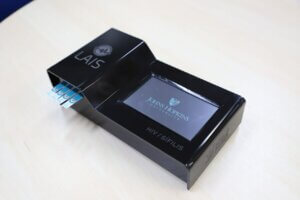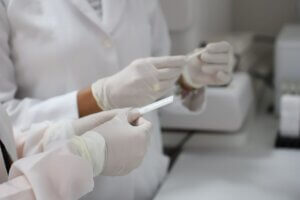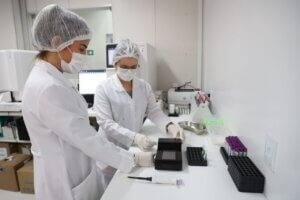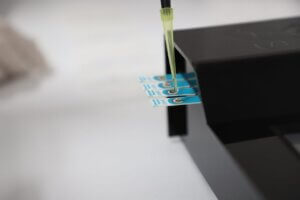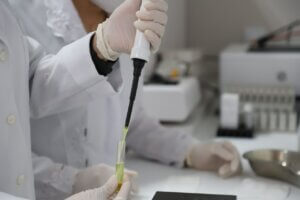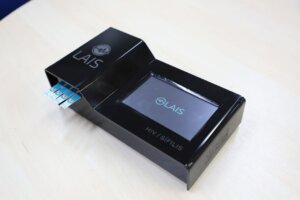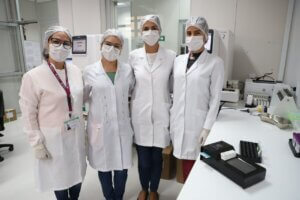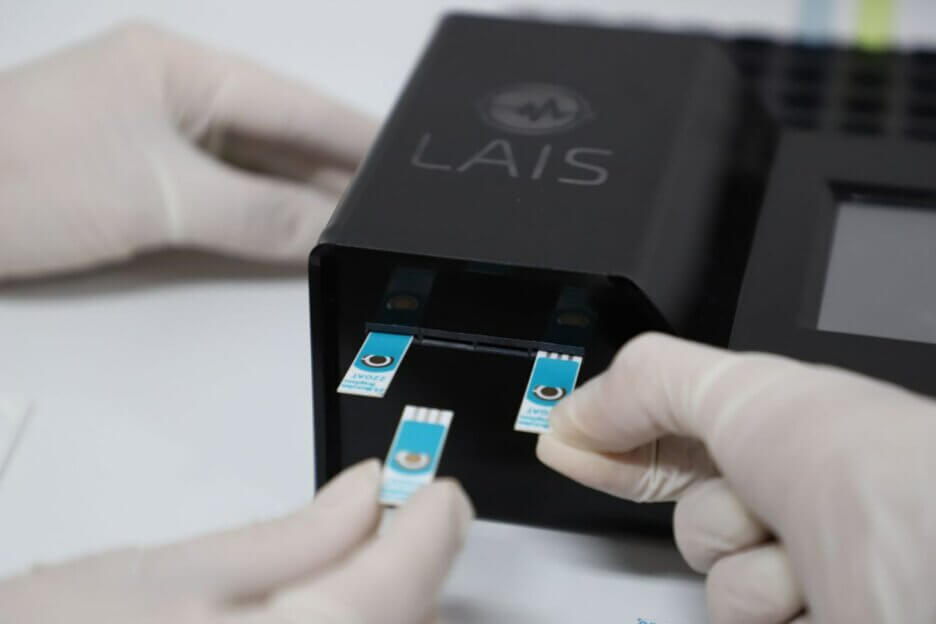By Valéria Credidio/ LAIS/UFRN Communication Advisor
Integrants of the protocol performed in all primary health units in the care of pregnant women, the tests for detecting syphilis and HIV can now be done simultaneously through the duo test. This technology is also being incorporated in the Technological Innovation in Health Laboratory (LAIS/UFRN) scope, which will soon start the production of the duo tests destined for some basic units in the northern part of Natal.
The production is the result of a demand from the Ministry of Health through the “Syphilis No” Project, which, since 2017, has been developing several actions to confront syphilis throughout Brazil. “Syphilis No” is a partnership between LAIS, the Ministry of Health, and the Pan American Health Organization (PAHO). Research is also enhanced by international cooperation in the United States, particularly with the University of Massachusetts in Boston and Johns Hopkins University.
The duo tests will be produced with supplies imported by LAIS and made available, in a pilot project, for the care of pregnant women, and may cost up to four times less than the tests currently used. The duo test is a solid-phase immunochromatographic assay for the qualitative detection of antibodies for all isotypes (IgG, IgM, and IgA) specific for HIV-1/2 and/or Treponema pallidum (TP) simultaneously in human serum, plasma, or whole blood.
According to Agnaldo Cruz, LAIS researcher and responsible for the logistics of importing the inputs, the production already has an organized structure. “It is an expansion of the scope of work done by the Laboratory, which already has the know-how to develop the activity.
The duo test is already employed in Brazil, and LAIS’s production is yet another alternative to meet the demands of the Ministry of Health. For Leonardo Lima, researcher and technically responsible for the development of the test at LAIS, this technology allows patients to have access to diagnosis and treatment faster, avoiding the dissemination of syphilis and other sexual infections that have similar transmission.
This action occurs in parallel with the validation process of a new device, fully developed by Brazilian researchers, which now advances to a new stage of development. “The new device designed by LAIS is being improved and validated with clinical samples. We hope that in a few months, we will have the complete research dossier to register this technology at ANVISA and start the implementation process in SUS primary care.
In the assessment of LAIS executive director Ricardo Valentim, the insertion of this technology in primary care will have a very positive impact, assisting in the qualification of the diagnosis, both of pregnant women and other people who seek syphilis and HIV tests. “In its great majority, the tests are performed separately, causing the loss of results and the follow-up of these patients,” he concluded.
